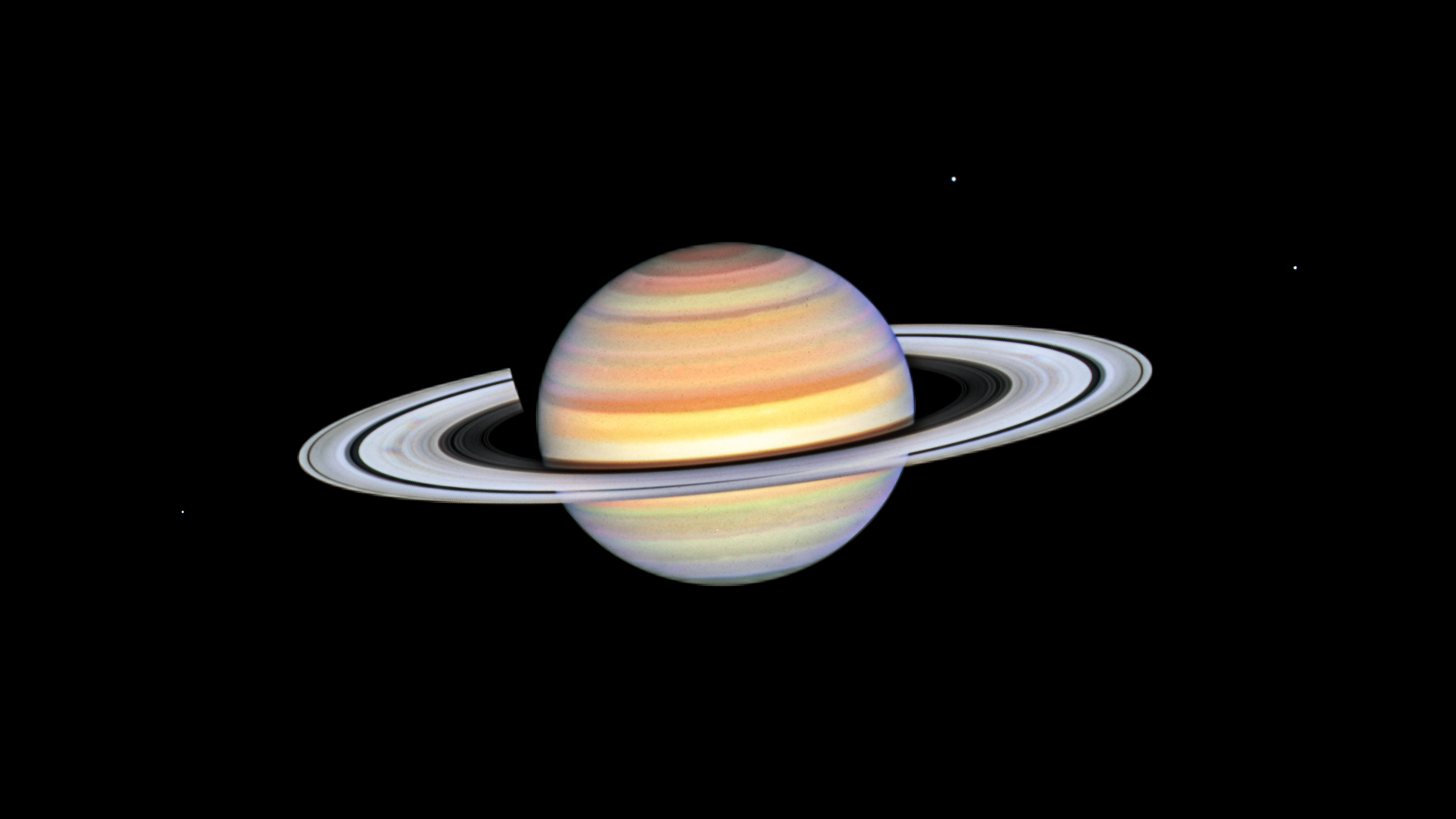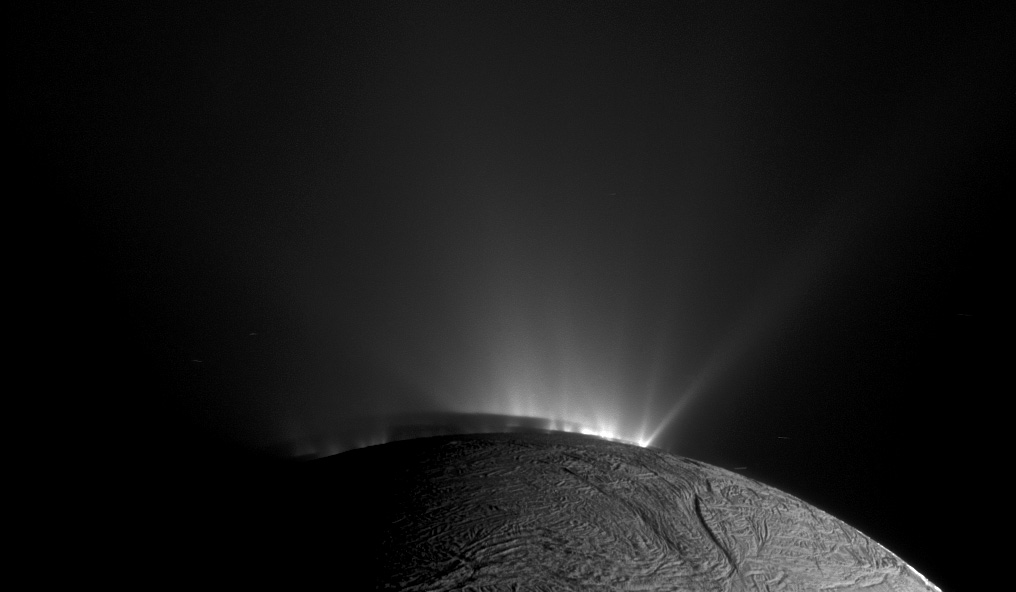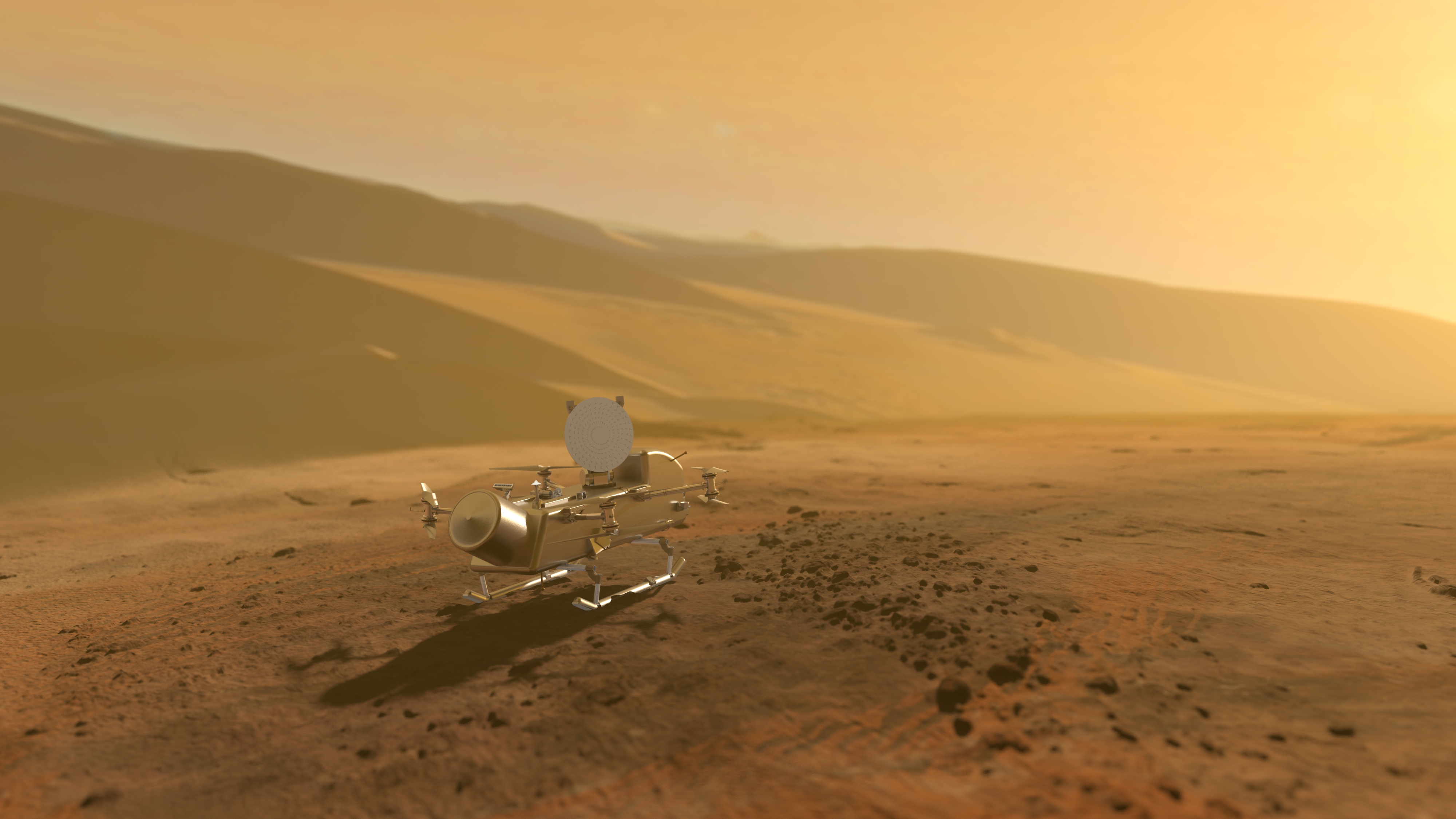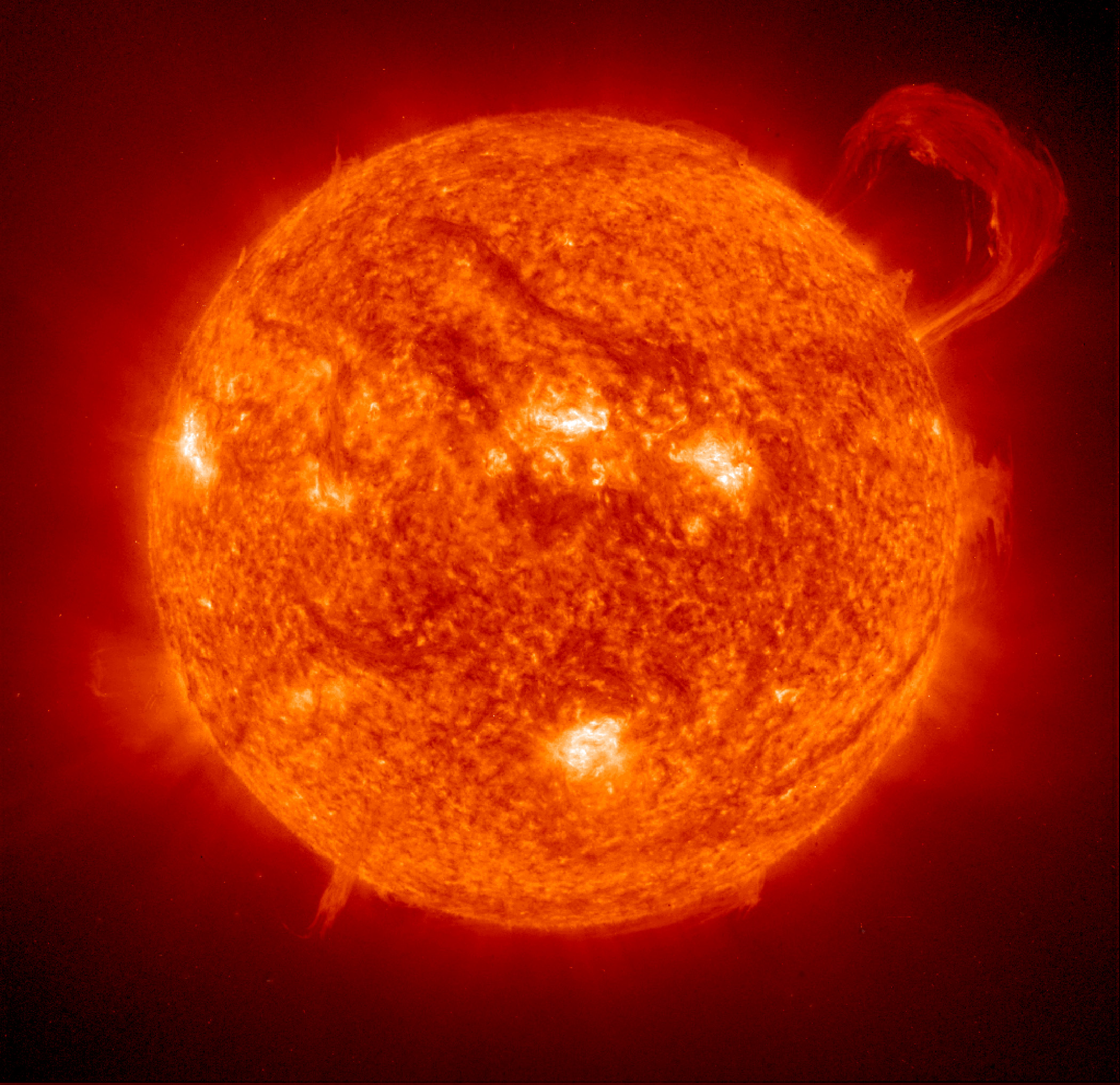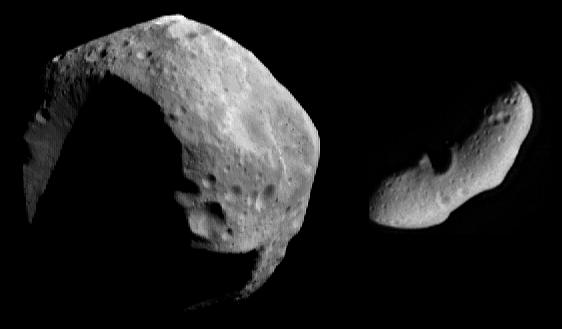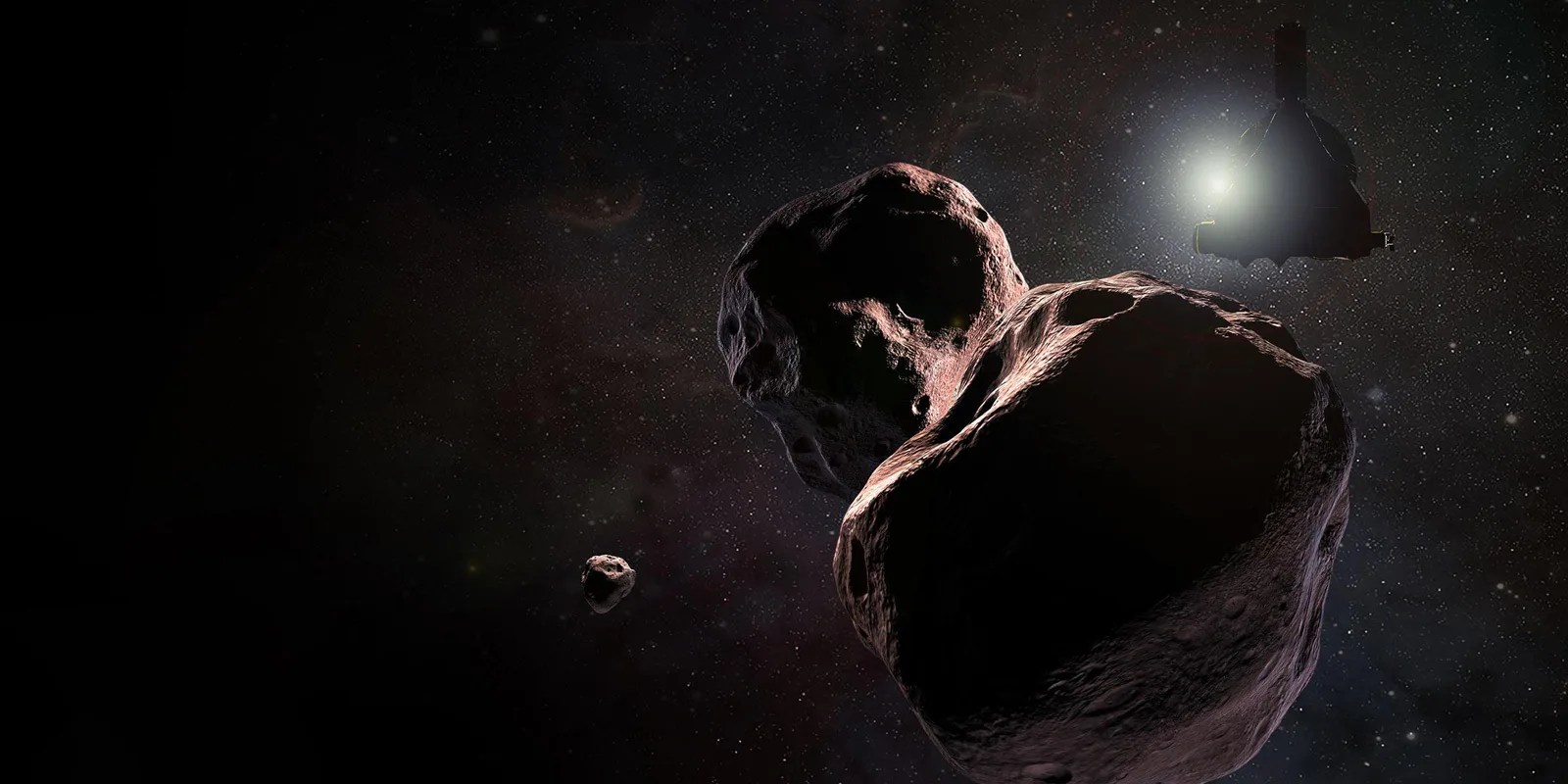4 min read
Cassini Significant Event Report
For Week Ending 04/23/04
The most recent spacecraft telemetry was acquired from the Goldstone tracking station on Wednesday, April 21. The Cassini spacecraft is in an excellent state of health and is operating normally. Information on the present position and speed of the Cassini spacecraft may be found on the "Present Position" web page located at http://saturn.jpl.nasa.gov/operations/present-position.cfm .
Science activities on-board for cruise sequence C44 include repetitive blocks of imaging with ride along instrument participation, Ultraviolet Imaging Spectrograph scans of the Saturnian system and optical navigation (OPNAV) images. The repeating imaging blocks will be used to develop Saturn approach movies to study the planet's atmosphere and its temporal variations, as well as search for new satellites, observe Titan, search for diffuse ring material, and map atomic species within the system.
Additional on-board activities included a downlink of a confirmation that a patch to fix the Composite Infrared Spectrometer (CIRS) Instrument Expanded Block (IEB) load buffer was successful. Also completed was the uplink of commands to load the Solid State Recorder (SSR) with the new ACS A8.6.7 flight software. The load process began on 19 April and completed on 21 April. Readouts indicate that the load was successful.
The sequence development process for tour sequences S01 and S02 continued this week. S01 has entered the Preliminary Sequence Integration and Validation 2 (PSIV) development phase. A preliminary Sequence Change Request (SCR) Approval Meeting was held to disposition thirty-two requests. All participating teams delivered Spacecraft Activity Sequence Files back to the file repository. An SCR Approval meeting was also held for S02. Six requests were dispositioned. Both the Sub Sequence Generation (SSG) Science Allocation Panel meeting and the SSG waiver meeting for S02 were cancelled. There are no changes in Deep Space Network (DSN) tracking times for S02. CIRS and Visual and Infrared Mapping Spectrometer (VIMS) are still doing thermal analysis for the Saturn Orbit Insertion (SOI) critical sequence and the SOI target working team science activities.
Science Operations Plan (SOP) Implementation for sequences S29 and S30 began this week. This is a two and a half month process to design, in significant detail, the science and other spacecraft activities for the period covering March 28, 2007 to June 11, 2007. Major science activities include four targeted flybys of Titan, which will allow Cassini's cloud penetrating RADAR to image Titan's surface. In one of the Titan flybys, the Cassini's Radio Science instrument will also skip radio waves through the layers of Titan's atmosphere to produce a density and temperature profile of Titan's thick atmosphere.
Work on other sequences in the development pipeline continues. Implementation of the Science Operations Plan (SOP) for S27 and S28 is at the halfway point. The engineering team has submitted its review of the first draft of the integrated plan. The rest of the flight team will now follow up on any issues identified by the engineers.
In the last week, 496 Imaging Science Subsystem (ISS) images and 36 Visual and Infrared Mapping Spectrometer (VIMS) cubes were returned and distributed, bringing the total of images acquired since the start of Approach Science up to 3725, and the number of cubes up to 734.
A delivery coordination meeting was held for the Spacecraft Operations Office Maneuver Automation Software (MAS) version 4.4, and the Mission Support and Services Office Electronic Command Request Form (eCRF) version 1.3
Outreach team members attended Huygens public day at the European Space Agency, where a presentation was given on Cassini to approximately 100 attendees.
A new bookmark is now available through the Cassini Outreach Office. Focused upon Cassini-Huygens' arrival at Saturn, copies are available upon request for general distribution.
Copies of the literacy bookmark were included in JPL education materials sent to NASA CORE for inclusion in the "extreme solar system" package. This package will be offered through the NASA CORE catalog to educators across the US. The bookmarks announce Cassini's literacy program and direct interested educators to the web site.
Cassini has sighted Prometheus and Pandora, the two F-ring-shepherding moons whose unpredictable orbits both fascinate scientists and wreak havoc on the F ring. For more information link to:
http://saturn.jpl.nasa.gov/cgi-bin/gs2.cgi?path=../cassini/multimedia/images/rings/images/PIA05387.jpg&type=image
Additional information about Cassini-Huygens is online at http://saturn.jpl.nasa.gov.
Cassini will begin orbiting Saturn on July 1, 2004, and release its piggybacked Huygens probe about six months later for descent through the thick atmosphere of the moon Titan. Cassini-Huygens is a cooperative mission of NASA, the European Space Agency and the Italian Space Agency. JPL, a division of the California Institute of Technology in Pasadena, manages the mission for NASA's Office of Space Science, Washington, D.C.
Media Relations Office
Jet Propulsion Laboratory
California Institute of
Technology
National Aeronautics and Space
Administration
Pasadena, Calif. 91109.
Telephone (818) 354-5011

